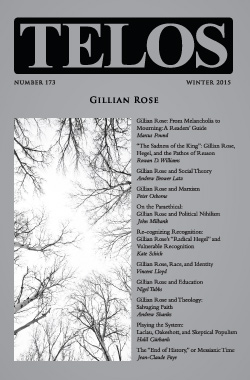In today’s episode of the Telos Press Podcast, David Pan talks with Edward Hadas about his article “Three Rival Versions of Monetary Enquiry: The Ideologies of Money,” from Telos 194 (Spring 2021). An excerpt of the article appears here. If your university has an online subscription to Telos, you can read the full article at the Telos Online website. For non-subscribers, learn how your university can begin a subscription to Telos at our library recommendation page. Print copies of Telos 194 are available for purchase in our online store.
|
By Telos Press · Friday, May 21, 2021 By Andrew Brower Latz · Tuesday, January 26, 2016 |
Current IssueSubscribe to TelosNow Available!Recent Posts
TELOSscope Archives |
|||
Telos Press Publishing · PO Box 811 · Candor, NY 13743 · Phone: 212-228-6479 Privacy Policy · Data Protection Copyright © 2024 Telos Press Publishing · All Rights Reserved Our website uses cookies to enhance your experience and show you more relevant content.
For more information, please see our privacy policy. By using our site, you agree to our use of cookies. OK |
||||








